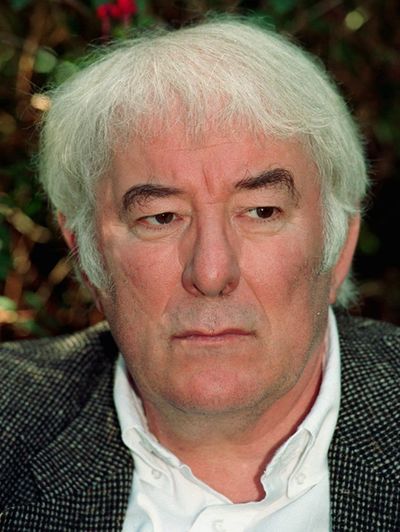Irish poet, Nobel winner Heaney dies
Works combined personal, historic

DUBLIN – Seamus Heaney, the Nobel Prize-winning poet whose crystalline, descriptive verse led many to consider him the best Irish poet since William Butler Yeats, died Friday after a short illness in a Dublin hospital. He was 74.
The white-haired writer was praised for evocative poems that frequently reflected his Irish upbringing and addressed the “Troubles,” the bloody conflict in his native Northern Ireland. His works were often meditations on the intersection of personal choice and loss with the larger forces of history and politics.
Well-known volumes included “Wintering Out,” “Station Island,” “The Spirit Level,” “District and Circle” and a lyrical translation of the epic poem “Beowulf.”
As one of the world’s premier classicists, he translated and interpreted ancient works of Athens and Rome for modern eyes and ears. Heaney gave other writers and fans time, attention, advice – and left a legacy of one-on-one, life-changing moments encouraged by his self-deprecating, common-man touch.
“He was a wonderful nature poet, a love poet and a war poet. He certainly addressed the darkness of what we call ‘the troubles,’ ” said Michael Longley, a Belfast poet and longtime Heaney confidant, who recalled chatting happily with Heaney over whiskey and pints of beer earlier this month at a western Irish literary festival.
“I told him I’d been re-reading his early works from the 1960s, and I just couldn’t believe that as a young man he was capable of writing such miracles. He continued to write miracles throughout his life,” Longley said. “He was a poet of extraordinary complexity and profundity, so it’s surprising and remarkable that he also could be so popular. … It’s not popular poetry. Seamus made it popular.”
John Hume, a Northern Ireland leader of the Irish nationalist side who won the Nobel Peace Prize in 1998, said Heaney’s work offered “a special channel for repudiating violence, injustice and prejudice and urging us all to the better side of our human nature.”
Heaney taught for many years at Harvard. After winning the Nobel Prize for Literature in 1995, he made speaking appearances around the world, delighting audiences with a disarming, gentle wit.
Among his fans was President Bill Clinton, who visited him during his convalescence and also named his dog Seamus.
Heaney is survived by his wife, Marie, and three children.